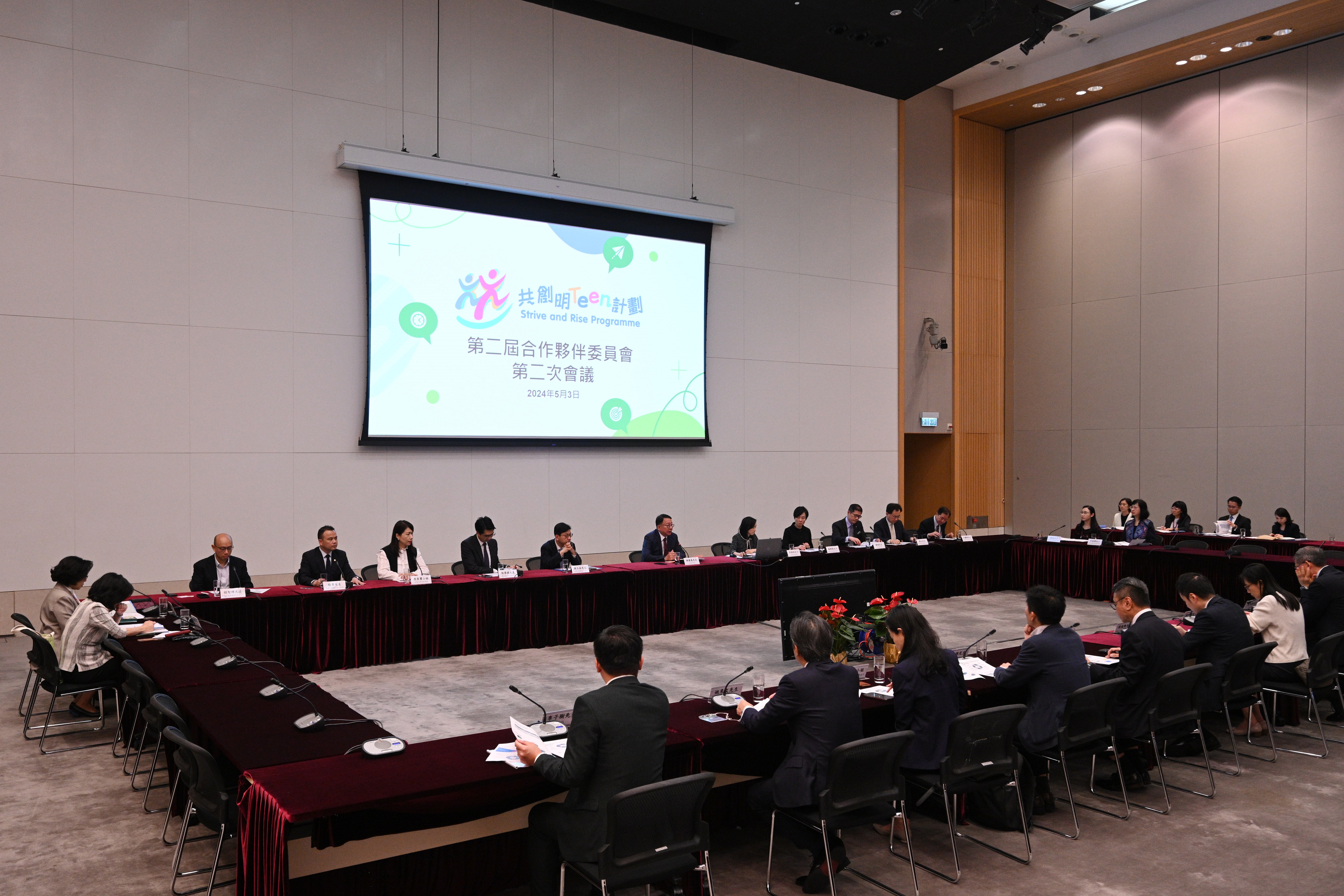
Hong Kong’s mentorship program for underprivileged students has helped over 70 percent of its participants meet preset goals, including raising their confidence and financial planning capacity, the Chief Secretary for Administration Eric Chan Kwok-ki said on Friday.
Launched in September 2022, the Strive and Rise Programme aims to lift low-achieving secondary school students from underprivileged families out of poverty through one-on-one mentorship, training sessions, and financial support. The first batch of 2,800 students completed the yearlong training in November 2023, and the program is looking for a second batch of participants until Nov 16.
Mentees’ improvements on financial planning capacity, interpersonal skills, self-confidence and a sense of belonging to the community were most obvious, according to their feedback, Chiu said
On Friday, the Hong Kong Special Administrative Region government released an evaluation report on the first cohort of participants. The report, drafted by a team from Hong Kong Polytechnic University, analyzed the views of more than 2,500 participants on eight indicators, namely self-confidence, self-esteem, resilience, responsibility and empathy, interpersonal and networking skills, a sense of social belonging, as well as the capacities of goal-setting, and financial planning.
READ MORE: Hong Kong mentorship scheme starts recruiting second cohort
Chan Kwok-ki said that over 70 percent of the students saw an improvement in at least three indicators after taking part in the program for a year, which meets a key performance indicator set by Chief Executive John Lee Ka-chiu in the 2022 Policy Address.
The parents and mentors have recognized the progress made by students, Chan noted, adding that the program has received HK$140 million ($17.91 million) in donations from various sectors, testament to the broad support from the community.
He said he believes the program can exert a positive influence on mentees’ growth and hopes the total number of participants on the program will reach 12,000 by 2026.
Eric Chui Wing-hong, a PolyU professor and head of the evaluation team, said the results show that participating students had clearer goals at the end of the program.
Chui said the surveys were given to mentees, their parents and mentors before and after the program. The evaluation team also conducted over 120 interviews to get more accurate results.
During the program, each student is paired with a volunteer mentor who shares their life experience and inspires the student to build self-confidence and make personal development plans
Mentees’ improvements on financial planning capacity, interpersonal skills, self-confidence and a sense of belonging to the community were most obvious, according to their feedback, Chiu said.
Participant Li Ching-po said the mentorship program helped improve his communication skills. Li, who plays the violin, thanked his mentor for providing him opportunities to perform in Beijing and Macao, and dreams of becoming a violin teacher in the future.
Another mentee Leung Yuen-shan said that the experience transformed her from an introvert into an outgoing person. She expressed her gratitude to her mentor, for being patient and willing to provide advice.
“I never thought about what I would do before. But through this program, I have become more concerned about social issues around me, and I plan to study sociology in college,” Leung said.
During the program, each student is paired with a volunteer mentor who shares their life experience and inspires the student to build self-confidence and make personal development plans.
READ MORE: A more proactive approach needed to boost SAR’s family office hub drive
Group visits to enterprises, government offices, transportation facilities and other places are also arranged to broaden the outlook of students.
Each student is given HK$5,000 on two occasions, during the program and after graduation, for expenses incurred in achieving their development plans.
Graduates of the program join an alumni club permitting them to take part in activities and internship programs.
Contact the writer at atlasshao@chinadailyhk.com


